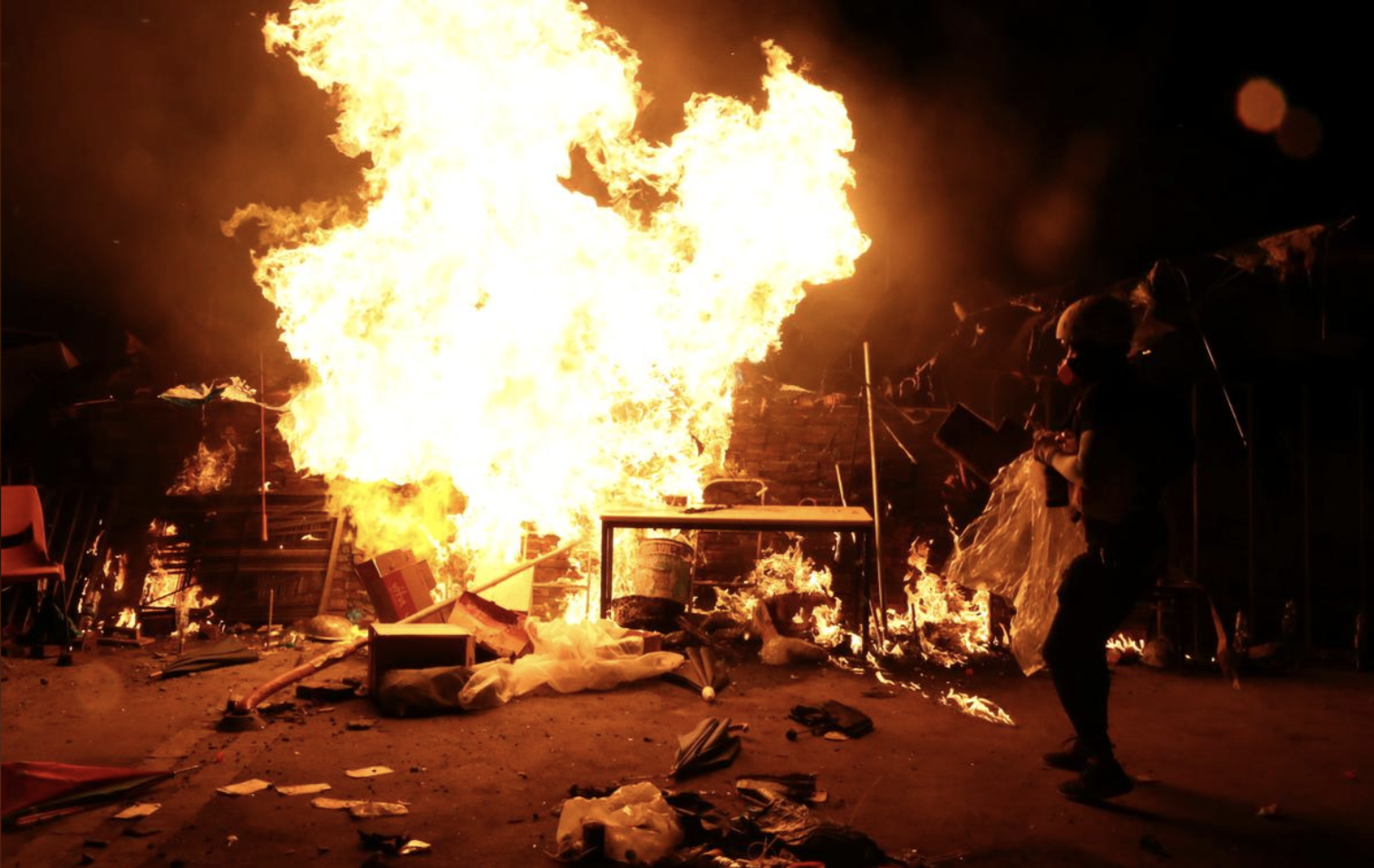
A common sight on the campus of Hong Kong Polytechnic University nowadays. /Photo via CGTN
A common sight on the campus of Hong Kong Polytechnic University nowadays. /Photo via CGTN
Editor's Note: Huang Jiyuan is an opinion editor with CGTN Digital. The article reflects the author's opinions, and not necessarily the views of CGTN.
In Hong Kong, the campus of Hong Kong Polytechnic University has just been restored to peace. But it was reported that over this weekend, secondary school students will be holding a rally on the streets.
There's nothing wrong with student activism.
People find their political preferences and form political convictions at a young age through an active observation of the world. While adults participate in the political process, students contribute to the governance of the society and shape public discourse through activism on and off campus. Especially at a time of social and global problems, students are the ones who are going to bear the consequence of today's actions. This gives them more right than anybody to voice their concerns.
But this doesn't mean that student activism should be given a blanket support in all circumstances.
Conditions in Hong Kong aren't exactly conducive for student activism to produce a positive response.
For most of November, the main story has been about college students barricading themselves on campuses and throwing petrol bombs at police. Before that, there was an incident where a young man tried to wrest a gun off a policeman. Events of vandalism and targeted disruption of public facilities was also done with students' helps.
On top of the present societal conflicts, the tension between students and Hong Kong police is already high. Adding middle school students into the mix would only make the situation more dangerous and complicated.
The biggest difference between secondary school students and college students is age, and this is of the greatest concern. Middle school is when students' worldview begin to take shape. What they see and experience will determine their temperament and attitude in the future. At this age, putting them in the middle of a potentially violent scene risks exposing them to negative influences that could make them physically aggressive in the future, and in turn put the entire society's development in jeopardy.

Fire burns while a protester engages in a standoff against the police. /Photo via Reuters
Fire burns while a protester engages in a standoff against the police. /Photo via Reuters
There is also question of who is responsible for their safety. The students themselves?
Legally and morally, the parents have to bear certain responsibility for actions of underage youths. So should parents be held responsible? Are they going to accompany their kids to the rally site? Do they have the power to keep their kids safe when order is disrupted? Alternatively, is the police responsible? What would happen when police are faced with the decision to enforce order? Is the police allowed to use the necessary force to accomplish their duty, or are they morally obliged to go easy on the young and let chaos reign?
These are the questions that need to be answered when thinking about taking middle school students onto the streets, particularly when Hong Kong has seen more than enough chaos and violence with students involved. Any questions that involve the treatment of young people and government responsibility can never be answered easily or have a clear-cut answer. This leads to complicated social ramifications if the event goes sideways, and may split the society even further apart when healing is already a tough process.
Let's admit it, some people do benefit from the chaos in which students and police are on opposite sides. Western media have a natural inclination to focus on these types of events and shape the public dialogue around the police's excessive use of force. We've seen this multiple times from outlets like the BBC and CNN through the course of the past several months.
This gives those who seek publicity to defame Chinese government and Hong Kong authority the perfect opportunity to do so. And when middle school students are involved, it could be expected that the image would be that much harsher on the side that has greater force – the police and the Hong Kong authority. One can never disregard the possibility and the capacity of agitators who would deliberately instigate chaos to reap whatever benefit they can.
Call me cynical, but organizing middle school students to march on streets amid extremely heightened social tension could hardly benefit governance or societal cohesion. And if someone is to benefit, the Hong Kong police and the students need to work together to make sure that it is their city that gets the positive results, not the opportunists.
(If you want to contribute and have specific expertise, please contact us at opinions@cgtn.com.)